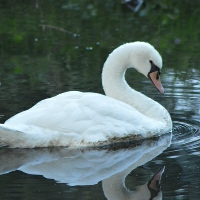戏剧的起源
中国戏曲源远流长,它最早是从模仿劳动的歌舞中产生的。
chinese opera has a long history. it originated from the imitation of labor.
(一)先秦——戏曲的萌芽期。《诗经》里的“颂”,《楚辞》里的“九歌”,就是祭神时歌舞的唱词。从春秋战国到汉代,在祭神的歌舞中逐渐演变出娱人的歌舞。从汉魏到中唐,又先后出现了以竞技为主的“角抵”(即百戏)、以问答方式表演的“参军戏”和扮演生活小故事的歌舞“踏摇娘”等,这些都是萌芽状态的戏剧。
(1) pre qin period: the embryonic stage of opera. the "ode" in the book of songs and the "nine songs" in the songs of the chu are the songs and dances for worshiping gods. from the spring and autumn period and the warring states period to the han dynasty, the song and dance of entertaining people gradually evolved in the song and dance of worshiping gods. from the han and wei dynasties to the middle tang dynasty, there were successively competitive "contests" (i.e. hundred operas), question and answer performances of "participating in the army" and songs and dances of "stepping on a shaking mother" playing life stories, all of which were budding dramas.
(二)唐代(中后期)——戏曲的形成期。中唐以后,我国戏剧飞跃发展,戏剧艺术逐渐形成。
(2) tang dynasty (middle and later period) - the formation period of opera. after the middle tang dynasty, chinese drama developed rapidly, and drama art gradually formed.
(三)宋金——戏曲的发展期。宋代的“杂剧”,金代的“院本”和讲唱形式的“诸宫调”,从乐曲、结构到内容,都为元代杂剧打下了基础。
(3) song and jin: the development period of opera. the "zaju" in song dynasty, the "yuanben" in jin dynasty and the "zhugongdiao" in the form of speaking and singing lay the foundation for the zaju in yuan dynasty, from music, structure to content.
(四)元代——戏曲的成熟期。到了元代,“杂剧”就在原有基础上大大发展,成为一种新型的戏剧。它具备了戏剧的基本特点,标志着我国戏剧进入成熟的阶段。
(4) yuan dynasty - the mature period of opera. in the yuan dynasty, "zaju" developed greatly on the basis of the original and became a new type of drama. it has the basic characteristics of drama and marks the mature stage of chinese drama.
(五)明清——戏曲的繁荣期。戏曲到了明代,传奇发展起来了。明代传奇的前身是宋元时代的南戏(南戏是南曲戏文的简称,它是在宋代杂剧的基础上,与南方地区曲调结合而发展起来的一种新兴的戏剧形式。温州是它的发祥地)。南戏在体制上与北杂剧不同:它不受四折的限制,也不受一人唱到底的限制,有开场白的交代情节,多是大团圆的结局,风格上大都比较缠绵,不像北杂剧那样慷慨激昂,在形式上比较自由,更便于表现生活。可惜早期南戏的本子保留下来的极少,直到元末明初,南戏才开始兴盛,经过文人的加工和提高,这种本来不够严整的短小戏曲,终于变成相当完整的长篇剧作。例如高明的《琵琶记》就是一部由南戏向传奇过渡的作品。这部作品的题材,来源于民间传说,比较完整地表现了一个故事,并且有一定的戏剧性,曾被誉为“南戏中兴之祖”。明代中叶,传奇作家和剧本大量涌现,其中成就最大的是汤显祖。他一生写了许多传奇剧本,《牡丹亭》是他的代表作。作品通过杜丽娘和柳梦梅死生离合的故事,歌颂了反对封建礼教,追求幸福爱情,要求个性解放的反抗精神。作者给爱情以起死回生的力量,它战胜了封建礼教的束缚,取得了最后胜利。这一点,在当时封建礼教牢固统治的社会里,是有深远的社会意义的。这个剧作问世三百年来,一直受到读者和观众的喜爱,直到今天,“闺塾”、“惊梦”等片断还活跃在戏曲表演的舞台上,放射着它那艺术的光辉。
(5) ming and qing dynasties - the prosperous period of opera. in the ming dynasty, legends developed. the legend of ming dynasty originated from nanxi in song and yuan dynasty (nanxi is the abbreviation of nanqu opera, which is a new form of drama developed on the basis of song dynasty zaju and the combination of southern tunes. wenzhou is its birthplace. the south opera is different from the north opera in system: it is not limited by four fold, nor by one person singing to the end. the narration plot with opening words is mostly the ending of a happy reunion. the style is more lingering, not as impassioned as the north opera, more free in form, more convenient to express life. unfortunately, only a few copies of the early southern opera remained. until the end of the yuan dynasty and the beginning of the ming dynasty, the southern opera began to flourish. after the processing and improvement of scholars, this short opera, which was not strict enough, finally became a quite complete long play. for example, the brilliant pipa is a work of transition from southern opera to legend. the theme of this work, originated from folklore, shows a complete story, and has a certain degree of drama, once known as the "ancestor of the rise of southern opera". in the middle of ming dynasty, a large number of legendary writers and plays emerged, of which tang xianzu achieved the most. he wrote many legendary plays in his life, and the peony pavilion is his masterpiece. through the story of du liniang and liu mengmei's life and death, the work extols the rebellious spirit of opposing feudal ethics, pursuing happy love and demanding personality liberation. the author gives love the power of reviving from the dead. it conquers the shackles of feudal ethics and achieves the final victory. this is of far-reaching social significance in the society that feudal ethics firmly ruled at that time. this play has been loved by readers and audiences for 300 years since it was published. up to now, "boudoir school" and "dream" are still active in the stage of opera performance, radiating its artistic brilliance.
中国古代戏剧因以“戏”和“曲”为主要因素,所以称做“戏曲”。中国戏曲主要包括宋元南戏、元明杂剧、传奇和明清传奇,也包括近代的京戏和其他地方戏的传统剧目在内,它是中国民族戏剧文化的通称。
ancient chinese drama is called "opera" because of the main factors of "opera" and "qu". chinese opera mainly includes southern opera of song and yuan, zaju of yuan and ming, legend and legend of ming and qing dynasties, as well as the traditional repertoire of modern beijing opera and other local operas. it is the general name of chinese national drama culture.
 郁金香 2024-04-20 11:59:51
郁金香 2024-04-20 11:59:51









